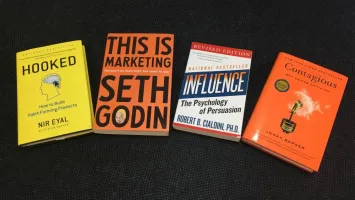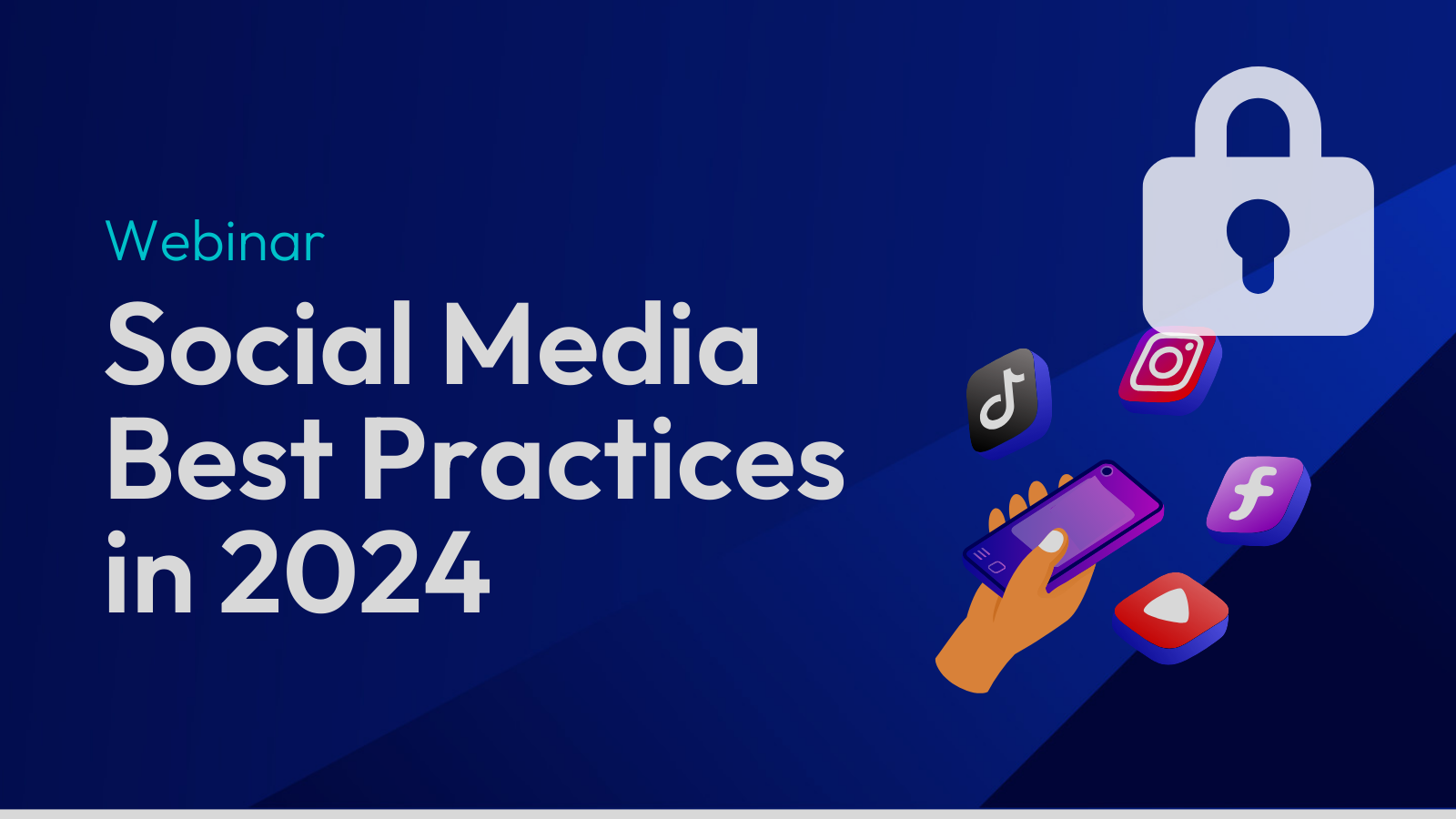Four of the Best Books on Marketing – Must-read International Bestsellers

It’s time to let the best business brains inspire you to act. Get instant access to our online book club; an ever-growing, curated collection of exclusive webcasts with best-selling authors and future thinkers. Simply log in to The Growth Faculty On Demand. You’ll find over 100 best-selling authors who share key concepts from their books in 20 -30 minutes. Members can learn more by watching our exclusive interviews with Nir Eyal, Jonah Berger, Robert Cialdini and Seth Godin.
To get you started on your professional development journey, here are our top four must-read internationals bestsellers to add to your reading list now:
1. Hooked by Nir Eyal
The cheapest way to bring a customer back time and time again, is to get them hooked on your product.
- You do this using the flywheel four-part Hook Model: Trigger, Action, Variable Reward, Investment.
- Triggers come in two types: External (call to action) and Internal (attaches to behaviours and emotions). For example, clicking a Facebook post (external trigger) leads to an association with social connection (internal trigger)
- Action is the behaviour done in anticipation of a reward.
- Variable Reward creates a craving, as intrigue is created if there’s a surprise or new delight awaiting the product user.
- Investment is where the user does a bit of work (adding in time, data, effort, money etc) which improves the service for the next go-around.
2. This is Marketing by Seth Godin
- Marketers make change happen. Our opportunity and our obligation is to do marketing that we’re proud of.
- Begin by choosing people based on what they dream of, believe and want, not based on what they look like. In other words, use psychographics, instead of demographics.
- Your strategy sits above the tactics. A strategy might be to earn trust and attention. A strategy, if successful, gets you closer to your goal. You may change it if it fails, but you don’t want to change often. However, you can change tactics the moment you decide that they’re not helping you achieve your strategy any longer.
- Lowering your price doesn’t make you more trusted. It does the opposite.
- “I made this” is a very different statement than, “What do you want?”
- A brand is a shorthand for the customer’s expectation. What promise do they think you’re making?
3. Influence by Robert Cialdini
There are six “weapons” of influence over human behaviour: Reciprocation, Commitment and Consistency, Social Proof, Liking, Authority, Scarcity.
- Reciprocation: All human societies subscribe to the rule that they are obliged to give back if they themselves have been given something. A free gift obliges the receiver to offer something in return.
- Commitment and Consistency: Once a stand is taken, there is a natural tendency to behave in ways that are stubbornly consistent with the stand. Children exploit this tendency with parents “But you promised, mum.”
- Social Proof: One way we find out if our choice (of product or service) is correct is to find out what other people think is correct. The more people we see doing something, the more we view that behaviour as the “correct one”.
- Liking: We most prefer to say yes to the requests of someone we know and like. Even total strangers who are more likeable have a sizeable advantage in getting our business.
- Authority: Authority figures have power over our behaviour. So does the appearance of authority – titles, clothes and trappings.
- Scarcity: Sales are boosted when customers believe the item is, or will be, scarce. It is enhanced with “exclusive” information announcing the impending scarcity.
4. Contagious by Jonah Berger
Contagious word-of-mouth recommendations are highly valuable. To make your campaign, product or service contagious, employ the 5 Principles of Contagiousness:
- Social Currency: People share things that make them look good to others.
- Triggers: Top of mind means tip of tongue. Think about whether your message will be triggered by the everyday environments of the target audience.
- Emotion: When we care, we share. Items that evoke awe are shared more. Funny items are share more than sad items.
- Public: Monkey see, monkey do. Humans follow the crowd and do what others do. If something is built to show, it’s built to grow.
- Practical Value: Saves money, saves time, makes people happier, improves health – this is news you can use.
- Stories: Tell stories with valuable virality. Make sure your desired information is embedded into the plot, so people can’t pass on the story without it.
On Wednesday 27th March we welcome Seth Godin back to The Growth Faculty – On Demand. Join our exclusive livestream, as Seth shares insights from his latest book This is Marketing.
On Demand is FREE for AMI CPM Members providing CPMs with up to $299.4 savings on access to the world’s greatest content. Click here for FREE Access for CPM Members. Not CPM? Click here to see if you’re eligible to become a CPM and become a Certified Practising Marketer TODAY.Or click here to register for ON DEMAND platform.
Start your 14 day FREE trial now.





